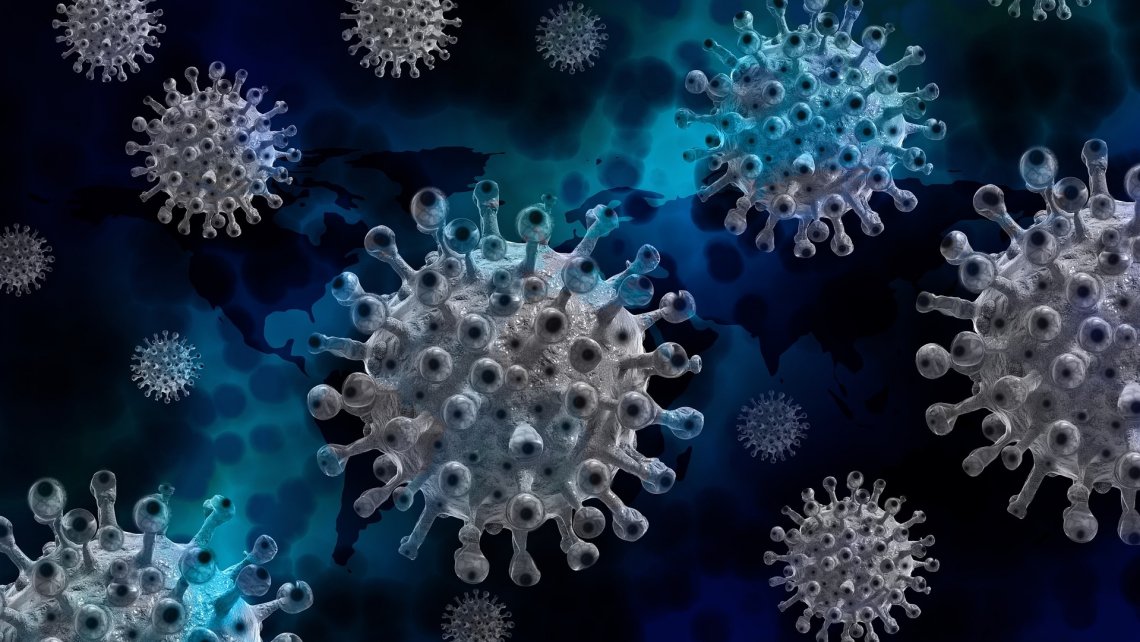By Dr. James Davie and Tasnim Beacon
The COVID -19 pandemic is caused by a beta-coronavirus known as the severe acute respiratory syndrome coronavirus 2 (or SARS-CoV-2). In the span of approximately one year, there have been nearly 74 million confirmed infections and 1.6 million deaths worldwide. Though there is much to learn about this virus and this disease, we know many ways that epigenetics is involved in infection and immunity as well as disease development and disparity.
First, along with the viral load we are exposed to, our individual epigenetic make-up dictates our response to SARS-CoV-2 infection, from being asymptomatic through the course of infection to dying. Reciprocally, the virus has the potential to alter our epigenetic programs, perhaps in ways that will only be discovered later. Our epigenetic composition is also affected by stress, including that caused by social and economic aspects of the COVID-19 pandemic.
Infection
The virus uses the spike proteins on its surface to bind to a host cell receptor protein called angiotensin-converting enzyme 2 (or ACE2), which is not uniformly distributed throughout the body—epigenetic factors cause a fluctuation in concentration in different tissues. For example, it is found in high concentrations in the small intestine, kidney, testis and heart, while low concentrations are found in the upper nose and throat as well as in the lower respiratory tract and lungs. Nonetheless, a relatively small concentration of SARS-CoV-2, in aerosolized droplets, can lead to infection of the respiratory tract. Using state-of-the-art technology, scientists have also found that the proteins produced by SARS-CoV-2, once inside the cell, target and potentially disrupt our epigenetic machinery.
Immunity
The common symptoms of COVID-19—worsening cough, fever, muscle or body aches and gastrointestinal issues—are consequences of epigenetically programmed responses our body uses to fight SARS-CoV-2 attack. When challenged by any virus, a healthy immune system will defend its host in two ways: the innate immune response is fast, while the acquired immune system takes time to develop and protects the body against future SARS-CoV-2 infection. Both systems are regulated by the epigenetic machinery.
Age
All age groups can be infected with the virus; however, how well a person deals with a SARS-CoV-2 infection depends on age and health status. As we age, our epigenetic machinery begins to falter, which can result in changes to metabolism, increased inflammation and a weakened immune response. The greatest number of deaths occur in people aged 60 years or older. Those with underlying health conditions, such as obesity and diabetes, are more likely to succumb to the disease. The elderly in long term care facilities are often poorly equipped to deal with a SARS-CoV-2 infection due to weakening epigenetic machinery and immune systems. However, our cells, individually and collectively, do not all age at the same rate. Evidence for this comes from epigenetic research using machine learning that has developed an accurate estimator of biological age; called an epigenetic clock, it has revealed how some people may age faster or slower, biologically, than they would do according to their age. There is hope that research in drugs altering metabolism could lead to a slowing down of epigenetic aging.
Sex
Among the COVID-19 cases reported, men appear to experience more severe symptoms and have a higher mortality rate compared to women. It has been suggested that females may have a more robust immune response (the downside being that they are more prone to auto-immune diseases), and that male hormones may lead to higher ACE2 expression. Males are also affected by underlying conditions such as cardiovascular issues at a younger age. Other underlying factors that shape the epigenetic response of males and females to COVID-19 may reflect social and behavioral differences between genders. Unfortunately, there is not yet enough scientific evidence to validate these hypotheses.
Environment
To reduce the spread of COVID-19, responsible people are self-isolating and reducing social interactions. Such behaviour can take a toll on our physical and mental health, particularly if it leads to increased anxiety and stress, and decreased exercise. The social isolation that many of us experience during long periods of quarantine can be problematic for our epigenetic machinery; psychosocial stress can lead to advanced epigenetic aging and a weakened immune system. Further, it is likely that this pandemic will have transgenerational consequences on our epigenetic composition— “epigenetic scars” that may be passed onto future generations; this is an area of ongoing research.

